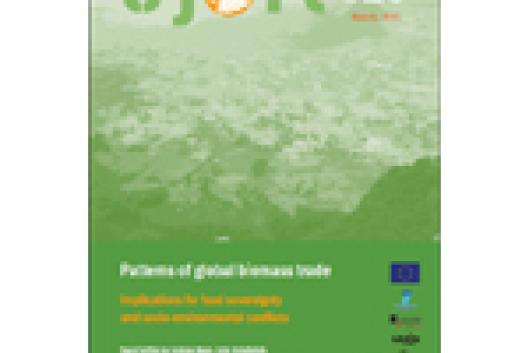A new report by EJOLT, an alliance of academic and activist groups struggling for environmental justice, analyses the increasing global biomass trade and highlights its impacts. The report examines the global evolution of food production and international food trade and identifies related drivers of socio-environmental conflicts. Looking at the history and causes of the oil palm industry in Indonesia, the soy monocultures in Paraguay and large land investments in Ethiopia, the case studies help to illustrate the broader patterns in the global biomass trade. Author Andreas Mayer commented that “The current expansion of agricultural lands in the global South puts massive pressure on local populations that are often threated with losing their livelihoods. This report aims to reveal the biophysical conditions and structural drivers of these conflicts and thus to identify conflict potentials that result from the dominant model of industrialized agricultural production”. See full report here:
www.grain.org/bulletin_board/entries/5178-the-global-biomass-robbery
The global biomass robbery
WRM Bulletin 212
10 April 2015
Issues: Biomass
Languages:
Image
